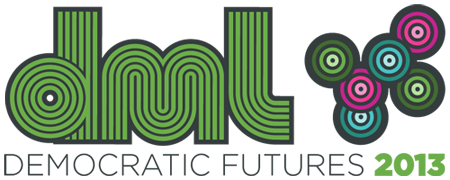YM: Vojo: Creating Community Based Mobile Media Workshops with Feature Phones, Voice Calls, and Picture Messages
DISPATCHO Workshop
Organizers: Marisa Jahn
Presenters: Marisa Jahn, Anjum Asharia, Sylvia Guerrero
Youth activist networks face the dual challenge of communicating complex issues in a way that both responds to the needs of their particular constituencies, while also garnering public attention and support. What’s more, communities organized around a campaign often find themselves with limited resources and against rapid deadlines. In this accelerated process, what's left out are those elements that enliven an issue—the strategies that can help communicate complex issues in accessible, innovative and playful ways.
This interactive workshop introduces participants to DISPATCHO, a set of tools (VoIP Drupal and VoJo) and methods that youth organizers and media makers can use to augment their ongoing inquiry and movement building. It draws off of youth media projects such as, “Superheroes of Far, Far Rockaway,” a civic media hotline produced in collaboration with the Queens Library Teen Center in Far Rockaway, NY. A teen-produced audio series, you can call in to get the 411 on the extraordinary citizens of this bustling sea-side community, and contribute to the project by recording your own Superhero story–all accessible through regular telephones! “Civil Rights Remix” is another youth-produced hotline that connects today’s civil rights issues with historical political/activists’ movements in Harlem. Excavating the archives at the Schomburg Center for Research in Black Culture, teens will use the VoJo platform to document research and interviews, gather and share content, and then create audio episodes made accessible via the hotline.
These projects, in turn, build off of “New Day New Standard,” a English/Spanish public art project and interactive hotline that informs domestic workers about their newly-recognized rights under New York State’s 2010 Domestic Workers Bill of Rights. To help inform the 200,000 nannies, housekeepers, and eldercare workers, and their employers about the new law, REV-, partnered with Domestic Workers United, MIT’s Center for Civic Media, and Urban Justice Center to tackle this problem. Given that domestic workers work long hours on the job and in isolation, are without regular access to the internet, use basic cell phones, and prefer discreet forms of outreach, we needed an innovative way to distribute information through the most basic technology and make it accessible at any hour. We created New Day New Standard with three key features: access to resources, engaging episodes, and interactive storytelling. The hotline broadcasts detailed information that augments the existing face-to-face outreach of advocacy groups.
This creative technology has the potential to provide a scalable and affordable for youth to inform, connect, and empower their peers and the larger public, while enabling growing momentum around youth-led movements. For example, it could be a highly effective tool for creating a know-your-rights campaign for undocumented youth, or retail workers’ rights. Through the workshop, participants will have the opportunity to explore other strategic applications of this technology.
Using Mobile Reporting to Engage with Your Community
Organizers: Neha Agrawal, Becky Hurwitz
Presenters: Neha Agrawal
In Cambridge Community Television’s Teen Media Program, teens use documentary filmmaking to explore issues in their community. Using professional video cameras and Final Cut Pro software, they create media that is well thought out and relevant to their lives in Cambridge. After weeks of shooting and editing, these pieces are shown on our public access channels. There is no doubt that there is much value in the time and labor in documentary style media production. However, in this digital age, are there other ways to share community voices? To be a “reporter”, do you need to have a camera crew and a tv channel? Do you have to be published in a newspaper, or even on a reputable blog? Reporting should and can come in all different media. It is sometimes easy to forget how accessible the internet is, but there are times when we cannot instantaneously email, tweet, or facebook. More importantly there are larger communities that don’t have consistent internet access. Vojo, developed by MIT’s Center for Civic Media, is a tool that is easy, instant, and accessible. Using Vojo, one can simply call or text in a story. That story then is updated on Vojo’s website or linked to other relevant websites.
This year students from our Teen Media Program took Vojo to the polls. We centered our first project around the presidential elections of 2012. It was a perfect time to get kids wondering about the political process, being critical media viewers, and the importance of voting. After shooting interviews with student political leaders at MIT, they learned how to refine and edit video. However, on Election Day itself the students spread out across different polls in Cambridge and asked three questions to voters: 1. Who are you voting for and why? 2. What changes do you hope to see? and 3. Why is voting important? They were able to record and upload different perspectives instantaneously using just their phones. The audio and text stories were then aggregated on both the Vojo and CCTV websites. Not only were they reporters for a day, but they were teachers too. By utilizing Vojo, they were both able to conduct their interviews and share a technology with the community so that if the interviewees wanted to call or text in a story from their phone, they would know how to do so.
In this panel/talk/workshop I would talk about youth media work in general but more specifically about 21st century civic education and how Vojo is an accessible tool for teens to directly engage in the voting process. Using Vojo was an important way for the students to learn about the candidates and the issues but also to be media conduits for their community.



